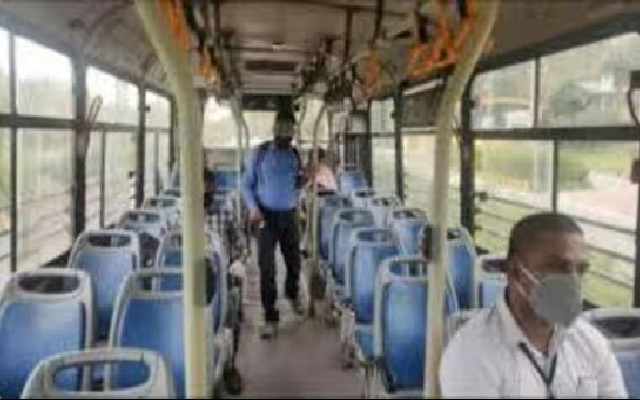Following a gathering facilitated by the UT education department and the state transport authority, attended by school principals from both government and private institutions, the traffic police have emphasized the imperative for seat belts in school buses to ensure students’ safety.
Deputy Superintendent of Police (DSP, Road Safety) Jaswinder Singh reiterated this point during the recent assembly.
This initiative follows directives from the Punjab and Haryana High Court in response to a Public Interest Litigation (PIL) filed in 2019. In January 2020, the court issued several directives, instructing the UT administration to convene a meeting and ensure the installation of seat belts in all buses.
Singh stated that the traffic police would intensify inspections to ensure full compliance with the Safe Transportation Policy for Students (STRAPS) established by the UT transport department. He referenced court orders from January 17, 2020, mandating the installation of seat belts in school buses.
Regarding this matter, DSP Jaswinder urged bus operators to promptly equip buses with seat belts. He acknowledged that most buses do not come equipped with seat belts initially but stressed the need for post-sale modifications. Additionally, he highlighted the necessity of booster seats for children under 12, emphasizing that bus manufacturers must adhere to these requirements. UT education department officials emphasized the authority’s ability to issue fines for non-compliance.
President of the independent schools association, HS Mamik, noted that compliance with STRAPS guidelines and court orders falls under the responsibility of bus contractors. He pointed out the authorities’ inaction towards overloaded autos, which pose significant risks to school children, suggesting a collaboration between auto drivers and law enforcement. Mamik also highlighted the frequent violation of rules limiting autos to carrying four children at a time, as mandated by the high court.
While STRAPS outlines standards for auto-rickshaws and maxi cabs, there’s a lack of specific guidelines for e-rickshaws introduced after the policy’s inception in 2015. DSP Singh proposed aligning e-rickshaw standards with those of auto-rickshaws, restricting them to carrying four students at a time and requiring safety features like horizontal grills. He emphasized the importance of schools compiling a transportation roster for students, facilitating cooperation with traffic authorities to conduct specialized training for e-rickshaw drivers and parents opting for this mode of transport. Furthermore, he advocated for extending STRAPS policies to coaching centers, currently regulated under the Motor Vehicles (MV) Act.
Meanwhile, the UT education department’s collaboration with Sector 26 schools resulted in a pilot program to alleviate traffic congestion, now set to continue due to its effectiveness. Despite St Kabir Public School’s request to allow boarding from outside the premises, this proposal may not be considered at present.
Read More :




